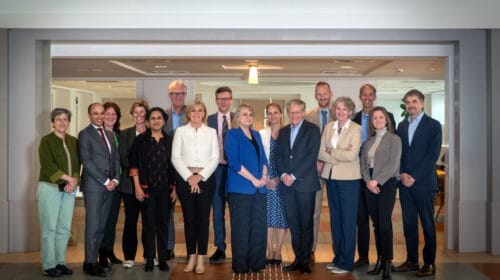Local music industry faulted
Two of Malawi’s top music acts have conceded that the local music industry is almost non-existent due to the disorganised manner in which it has been carrying business.
The two, music producer and artist BFB and jazz maestro Erik Paliani, separately said consequently Malawi music is not making strides on the international scene.

They both spoke during a virtual discussion called The Music Room under the theme Shaping Malawi Music for the Future, Using the Past, by various arts players held on Friday evening.
BFB, real name Jeremy Matewere, said Malawian songs can make it big and acquire its own identity as Malawi music only if the industry is organised to promote the music and reward artists accordingly.
He said: “The identity of Malawi music is there. But for the world to get that identity and acknowledge it, there is need for promotion and investment. That is what we lack.”
He pointed out that many in Africa feel Nigerian and South African music is more authentic and mature, but it is because the industry in those countries is more organised.

“There is no such a thing as good or bad music. What is different is how the music is handled after it is produced,” said BFB, who is currently based in South Africa.
The renowned producer, who has hogged the limelight recently after producing the hit Ithemba by Emtee, said the existing Malawi music has the same potential as music from the rest of the world.
On his part, Paliani said local music cannot go far when people access the music freely and share without paying for it.
“There is need to create a music industry that is tight and effective. We need music distributors, promoters, public relations managers and record labels,” he said.
Paliani said the music industry produces a product just like it is with other industries such as tobacco.
He said: “With the tobacco industry, the value chain is clear. When the prices go up, every member of the chain, including the farmer, smiles because they know they will all benefit. With music in Malawi, it is different. A song can be popular with many downloads and the musician gets nothing.”
Paliani called upon more arts players to come in and find the best way forward in organising the music industry in Malawi.
Music critic Gregory Gondwe said in his contribution that there is need to bring to light how artists are rewarded for their work.
“Institutions like Copyright Society of Malawi [Cosoma] and online distribution companies are never transparent with their system of distributing royalties for sales and views. It is sad to see popular musicians struggle economically yet their music is a treasure trove,” he added.
Gondwe gave the example of the late Stonald Lungu, the musician behind the hit song Zapadziko, who was forced to go on stage and perform to raise money for his cancer treatment.
“With his song everywhere and enjoying a lot of airplay, the late Lungu should never have struggled like that. This is a mirror of our situation,” he said.
Paliani ended his session with a brief performance of one of his jazz numbers.
The Music Room is a brain child of arts enthusiasts Dave Namusanya and Hastings Ndebvu. It is held on the last Friday of the month via Zoom.




